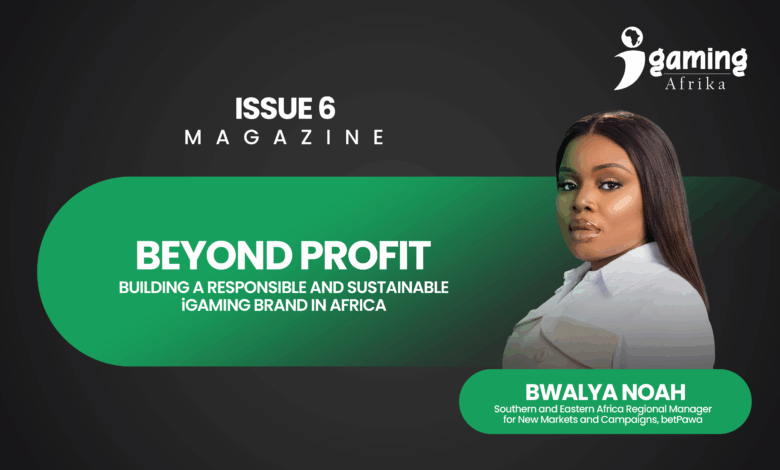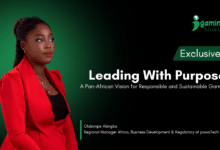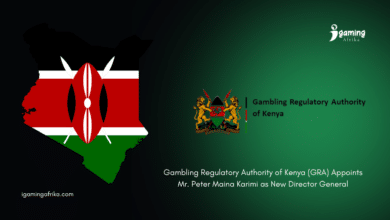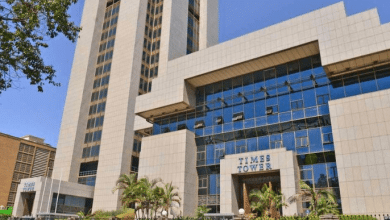Exclusive: Bwalya Noah on Building a Responsible and Sustainable iGaming Brand in Africa

In Africa’s fast-evolving iGaming sector, no two markets are the same, and few know this better than Bwalya Noah, Southern and Eastern Africa Regional Manager for New Markets & Campaigns at betPawa. With hands-on experience launching in diverse regulatory and cultural landscapes, Bwalya has mastered the art of balancing localised strategies with a consistent brand promise. In this conversation, she shares insights on market readiness, the role of mobile money, collaborating with regulators, and why responsible gaming is just as critical as growth in shaping the industry’s future.
iGaming AFRIKA: Could you please introduce yourself and what you do?
Bwalya Noah: I am Bwalya Noah, and I work at betPawa as Regional Manager for Southern and Eastern Africa, focusing on New Markets & Campaigns. I’ve spent years navigating Africa’s dynamic iGaming landscape, launching in diverse markets and tailoring our approach to meet local realities. At the heart of my work is a belief that sustainable growth in this industry comes from trust, cultural understanding, and a commitment to doing things the right way.
iGaming AFRIKA: You lead New Markets & Campaigns across both Southern and Eastern Africa, regions that differ in regulation, infrastructure, and customer behaviour. How do you tailor your expansion strategy to reflect these local nuances while keeping a consistent brand promise?
Bwalya Noah: Successfully leading new markets and campaign initiatives across Southern and Eastern Africa necessitates a balanced dual approach. This involves integrating localisation efforts with a consistent brand promise. Given the diverse regulatory landscapes, varying infrastructure maturity, and distinct customer preferences within these regions, a thorough understanding of these nuances is paramount to any expansion strategy.
iGaming AFRIKA: Looking at both mature and emerging markets under your leadership, what are some early signs you watch for to gauge whether a new market is ready for entry?
Bwalya Noah: Market entry readiness hinges on a clear and stable regulatory environment, significant market size and growth potential (indicated by consumer interest and online engagement), and robust infrastructure like reliable payment systems, high internet penetration, and widespread smartphone usage. Local partnerships with banks and telecom companies also signal market openness. Furthermore, understanding cultural acceptance and social attitudes is vital for addressing responsible gaming and identifying opportunities. Monitoring the competitive landscape also provides valuable insights into differentiation. Finally, local expertise is essential for navigating specific regulatory and cultural differences.
Read Also: Exclusive: Artur Harutyunyan on Localised Storytelling, AI, and Payments
iGaming AFRIKA: What role do mobile money and digital wallets play in the success of iGaming platforms across Africa?
Bwalya Noah: Mobile money and digital wallets play a vital role in the success of African iGaming platforms by offering secure and accessible transactions where traditional banking is lacking. Helping in bridging the gap between the banked and unbanked populations, building trust through real-time payments, boosting customer onboarding, and fostering industry growth and sustainability.
iGaming AFRIKA: How can regulators and operators work better together to protect players without stifling growth?
Bwalya Noah: Through collaboration, regulators and operators can co-create responsible gaming frameworks. Regulators play a vital role in protecting players, ensuring fair play, and generating sustainable tax revenue for the country. However, when taxation or compliance costs are set too high, licensed operators struggle to remain competitive. This creates a gap that unlicensed or grey market operators exploit, offering players lower odds or bonuses that regulated companies cannot match. High taxation can unintentionally push betting activity into the grey market, as licensed operators struggle to remain competitive.
When players migrate to unregulated platforms, regulators lose visibility, player protections are weakened, and tax revenue declines. The solution is a balanced tax and licensing framework that allows regulated operators to thrive while delivering steady revenue to the state. This approach strengthens compliance, keeps players within a safe environment, and ensures long- term sustainability of the industry. Clear and flexible regulation leads to long-term success and happy customers.
iGaming AFRIKA: Most operators are in the business to make money. However, they need to know the impact of gambling on society. What are some of the things you are doing at betPawa to ensure there is a balance between profitability and responsible gaming?
Bwalya Noah: At betPawa, our operations are built on a foundation of strict adherence to regulatory standards across all markets. We are deeply committed to fostering responsible gaming, a principle reflected in all our communications and activities. This dedication extends to our Corporate Social Responsibility (CSR) initiatives and past sponsorships, which are designed to deliver tangible benefits to local communities such as the “locker room bonus.” Within betPawa’s business operations, sports development in Africa holds significant importance. We are deeply committed to fostering the growth of sports across the continent through the locker room bonus initiative. Our objective is to empower players and teams by directly acknowledging their diligent efforts and commitment.
A core aspect of our commitment to responsible betting is the strict enforcement of an 18+ age restriction. This emphasis on responsible gaming is consistently integrated into all our marketing and messaging. Furthermore, we empower our major winners with expert-led financial literacy training through our Financial Empowerment Programme. This ensures that their winnings have a lasting impact beyond the immediate celebration, reinforcing their understanding that with betPawa, they are part of a responsible community.
Read the full interview in our digital magazine:























